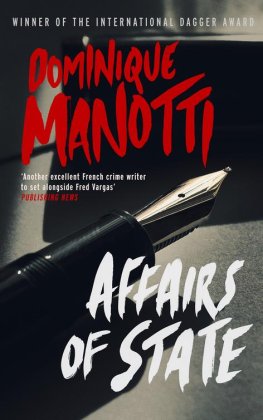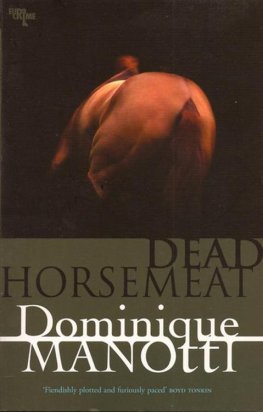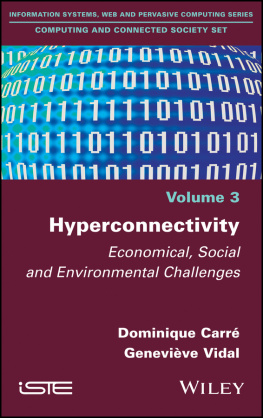Dominique Venner - For a Positive Critique
Here you can read online Dominique Venner - For a Positive Critique full text of the book (entire story) in english for free. Download pdf and epub, get meaning, cover and reviews about this ebook. year: 2017, publisher: Arktos Media Ltd., genre: Politics. Description of the work, (preface) as well as reviews are available. Best literature library LitArk.com created for fans of good reading and offers a wide selection of genres:
Romance novel
Science fiction
Adventure
Detective
Science
History
Home and family
Prose
Art
Politics
Computer
Non-fiction
Religion
Business
Children
Humor
Choose a favorite category and find really read worthwhile books. Enjoy immersion in the world of imagination, feel the emotions of the characters or learn something new for yourself, make an fascinating discovery.

- Book:For a Positive Critique
- Author:
- Publisher:Arktos Media Ltd.
- Genre:
- Year:2017
- Rating:5 / 5
- Favourites:Add to favourites
- Your mark:
- 100
- 1
- 2
- 3
- 4
- 5
For a Positive Critique: summary, description and annotation
We offer to read an annotation, description, summary or preface (depends on what the author of the book "For a Positive Critique" wrote himself). If you haven't found the necessary information about the book — write in the comments, we will try to find it.
For a Positive Critique — read online for free the complete book (whole text) full work
Below is the text of the book, divided by pages. System saving the place of the last page read, allows you to conveniently read the book "For a Positive Critique" online for free, without having to search again every time where you left off. Put a bookmark, and you can go to the page where you finished reading at any time.
Font size:
Interval:
Bookmark:
For a Positive Critique
By A militant / For Other Militants
Written by Dominique Venner
Arktos
London 2017
Copyright 2017 by Arktos Media Ltd.
Follow us: Arktos.com | Facebook | Instagram | Twitter
All rights reserved. No part of this book may be reproduced or utilised in any form or by any means (whether electronic or mechanical), including photocopying, recording or by any information storage and retrieval system, without permission in writing from the publisher.
Printed in the United Kingdom.
ISBN
978-1-912079-84-1 (Paperback)
978-1-912079-83-4 (Ebook)
Translation & editing
Aodren Guillermou
Cover and Layout
Tor Westman
Original Title
Pour une critique positive (c. 1964)
The action undertaken after the failure of April 1961 has made use of new means. It has mobilized a greater number of partisans and has resolutely pursued a violent and clandestine path. This transformation of the forms of struggle, however, has not affected the fundamentals of the methods that preceded it. It continues to conform to the characteristics of nationalist struggles, fraught with both courage and failure.
In 1917, Lenin ran the risk of military defeat in order to create the conditions of the Bolshevik revolution. Franco marked his grip over the insurrectional command in 1936 by executing his own cousin, who refused to follow him. These are two examples of behavior opposite to that of the nationalists.
By contrast, the refusal to actually bring the fight to Metropolitan France on April 22, 1961, such as during the bloody and futile Parisian demonstration of February 6, 1934, is typical of the nationalist mentality.
These nationalists who use the word revolution, without knowing its meaning, believe there will be some spontaneous nationalist awakening. They also believe in the armys support. They trust in these unrealizable dreams as one trusts dubious miracle cures, they do not understand the necessity of educating partisans with sound doctrine that explains the causes of Western decadence, proposes a solution, and serves as a guidepost for thought and action. Thus they wallow in a string of political afflictions that are ultimately responsible for their failures.
The nationalists attack the symptoms of the disease, not the cause. They are anti-communists, but forget that neo-liberal capitalist regimes are the primary vectors of communism. They are hostile to the governments Algerian policy, but forget that this policy was the product of a particular regime, its ideology, interests, real financial masters and technocrats, as well as its political and economic structures. They sought to save French Algeria from this regime, while still buying into its myths and tenets. Can you imagine the early Christians worshiping pagan idols and communists praising capitalism?
Every nationalist has his good Gaullist, his good technocrat, his good minister. Yielding to old bourgeois reflexes, he dreads the adventure and the chaos. As long as men of the regime wave the flag, he will trust them. He prefers the comfort of self-deception to lucidity. Sentimentalism and parochial interests always prevail over political reasoning. In the vain hope of satisfying everybody, refuses to take a side and ultimately satisfies nobody.
For lack of imagination, the nationalists continue to blow Drouldes bugle, which rallies but a scant few. Programs and slogans are fixed to the pre-war tricolor. Everything from military takeovers to negative anti-communism, through to counter-revolution and corporatism, these nationalist formulas repel more than they attract. This political arsenal is half a century old. It has no hold on our people.
The same reasons for which these nationalists reject the primary importance of ideas in the context of a political struggle result in their complete rejection of organization. Their actions are vitiated by the very flaws that are their undoing.
Many noteworthy nationalists, including members of parliament and those in the military and civilian sectors, are opportunists as a matter of personal ambition. They generally camouflage their careerism in the skills that they bring to the table. It is using these skills that the nationalists supported the referendum of 1958 and the enterprises of politicians ever since. Behind each of these positions, they see the prospect of a medal, a sinecure, or an election. They can feel the changes in the wind and may become violent, even seditious, when doing so appears to be profitable. Their violent speeches frighten no one. They may attack a man, or the government, but they are careful not to attack the core of the regime itself. Algeria served as a springboard, a chance to make a fortune from the generously dispensed subsidies, while the militants had to fight with their bare hands. If the wind turns, they do not hesitate to betray their flag and their comrades. Their seat in parliament is not a means but an end in itself: it must be kept at all costs. The lowly partisan is opportunistic by lack of doctrine and training. He trusts the smooth talker and his superficial impressions rather than analysis of political ideas and facts, he is dedicated to being duped.
The reading of far too many spy novels, memories of the Resistance and other special services, not to mention plotters, Gaullists and others, plunge the nationalists into a state of permanent reverie. A game of bridge with a retired general, a member of parliament, or a sergeant from the army reserve becomes a dark and powerful conspiracy. If they recruit as few as ten high school students, they think themselves Mussolini. If they boast that they command a group of five thousand organized men, it means they merely have a ragtag mob of several hundred. If, by chance, they receive a letter from a military institution, they display the envelope with ominous sighs and silences, as if involved in some cloak and dagger conspiracy. They call for unity but have only bitter reproaches against the sectarianism of militants who refuse to take them seriously. These same nationalists, in periods of genuine repression, are arrested with lists of addresses and documents, and begin to talk the moment the policeman raises his voice.
Inept situational analysis, and the absence of doctrine and training that pushes some towards opportunism, throws others into counterproductive violence and terrorism. Poor understanding of the most basic studies, as well as devotion to certain aspects of the communist subversion of the FLN has increased this tendency. The detonators set under the concierges windows did not bring a single partisan to the cause of French Algeria. Blind terrorism is the best way to alienate the general population. As indispensable as clandestine action and the calculated use of force can be when a nation has no other means of defending itself, especially when this action seeks to call the populace to action, terrorism places those using it outside the popular community and is condemned to failure.
The nationalists who admire the discipline of others are, in practice, essentially anarchists. Unable to identify their place in the struggle, they have a taste for disorderly action. Their vanity pushes them to gratuitous individual acts, even if their cause suffers from it. They ignore their word of honor and nobody can predict where their fantasies will lead them. They rigorously follow a ringleader and thrive in small clans. The absence of common ideological references increases their scattering and their organizational unity.
Next pageFont size:
Interval:
Bookmark:
Similar books «For a Positive Critique»
Look at similar books to For a Positive Critique. We have selected literature similar in name and meaning in the hope of providing readers with more options to find new, interesting, not yet read works.
Discussion, reviews of the book For a Positive Critique and just readers' own opinions. Leave your comments, write what you think about the work, its meaning or the main characters. Specify what exactly you liked and what you didn't like, and why you think so.









